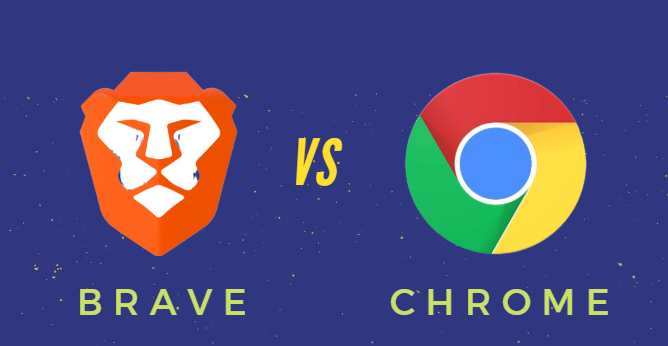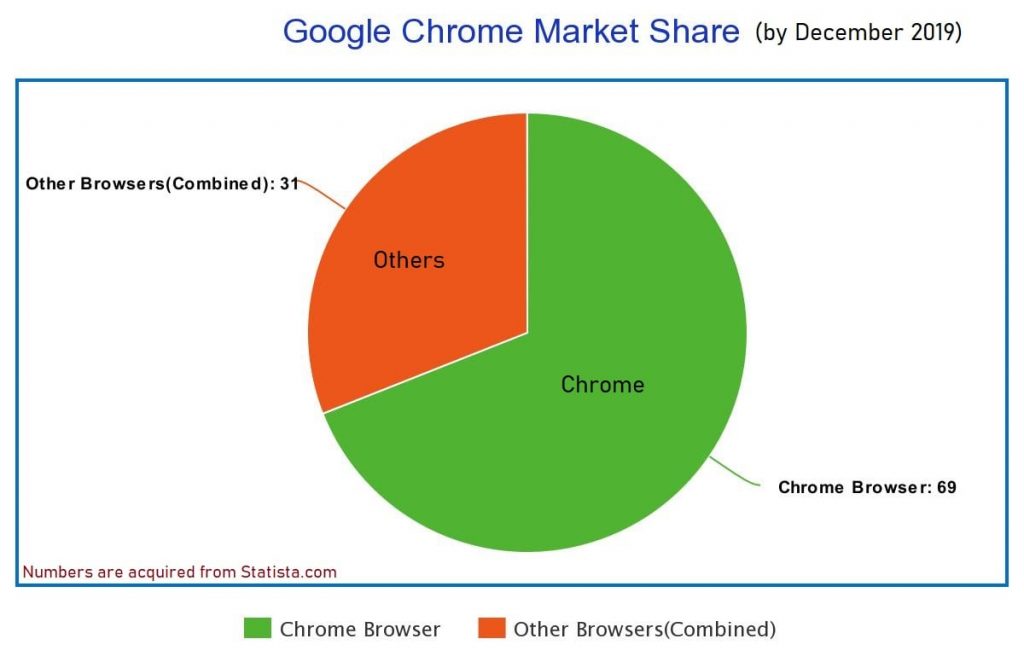Is Brave better than Chrome?

Google's domination is everywhere around us. Search engine, email provider, browser, android phone OS, and you name it. You are likely reading this page through a Chrome browser. It is the most popular browser of today, and likely for an unforeseen future.
According to Analytics Company Statista, by December 2019, Google Chrome is used by approximately 69% of internet users, and only in the last 3 years, its market share has grown by 12%.

However, Chrome is not the best option if you value your privacy. There are better alternatives to Chrome if your expectation from a browser is “privacy-first”. One of them is Brave Browser. They have recently released a first full release.
Brave Browser is a project should be taken seriously. Because it is the project of Brendan Eich who is the co-founder of Mozilla. Brave has gained a lot of attention in recent years.
It has its own private ad network, and a payment system encouraging its users to use their system to make transactions on the web. Although Brave is only left the beta version behind, there are 8 million people using it every month.
It works seamlessly well on both desktop and mobile devices. It is compatible to work with on Windows, Linux, and Mac. There are IOS and Android versions for mobile devices. However, Brave has still too small in terms of the number of users it has.
It is smaller than Google and even Firefox. But the number of people using it as their primary web browser may change in the future. Because there are well-grounded reasons for many people ditching Chrome.
Minimized data collection
One of the most important concerns of Google Chrome or Firefox users is compromised privacy. Although these browsers are very user-friendly and functional, we never know what is going on behind the scenes.
Google is a giant data company that generated revenue from advertising. It collects all kinds of user data through search, maps, voice, etc. By using this information Google pictures an avatar of you.
Google is a business that wants to make money. By using your data it targets your interests more effectively. In return, you will bring the most revenue for Google's business.
Let me summarize it in another way for you. Advertisers are Google's customers, they pay Google for your attention. The more Google knows about you, the more specific ads you will be shown. Advertisers make more money, they keep paying Google and so on.
Brave works fundamentally differently than Google. It blocks ads that record your browsing history. It is done in the default configuration, which means it minimizes the amount of data collected from the users.
Here what they tell on their website:
Our servers neither see nor store your browsing data, it stays private, on your devices, until you delete it.
If you use Brave, you can find on your dashboard how many ad trackers Brave has blocked to improve your web experience.
Much Faster browsing
When it comes to surfing web speed does really make the difference.
Brave says that their browser works significantly faster than its competitors. The company says most websites can be accessed both on mobile and desktop about 2-8 times faster compared to Chrome and Firefox.
What is the reason for it?
Since the Brave browser doesn't load tracker ads, the company claims it can load web pages more quickly.
Pick a default search engine
Brave uses Chromium source code as like all other modern web browsers. Both Microsoft Edge, and Google Chrome use the same source code. However, it doesn't mean your security is
Brave is built on the Chromium source code, which is the same framework that pretty much all modern web browsers use: both Microsoft Edge and Google's own Chrome use the code. But this doesn't mean your information leaks to Google.
You are granted a search engine range when starting Brave for the first time. Google is set as the default search engine. However, you have the option to choose DuckDuckGo, Qwant, Bing, and StartPage alternatively.
Built-in password manager
Chrome has its own built-in password manager. Sure it is better than remembering your passwords to type across multiple devices. If you use most of Google services it can be pretty handy.
However, did you know you are handing your entire digital existence to a company and relying on them for everything?
Brave has an built-in password manager as well that works similarly to Chrome's one.
It can save your passwords automatically, and keep them secure. You will not need to remember your username and passwords when you want to login to websites. Because Brave will autofill your user information if you choose to do so.
Private ads
At this point, you may be thinking why Brave is so good? Also, if it is an ad-free browser how do they make money?
Although Brave by default blocks all advertising it is not ad-free. The company truly believes they have a better way of advertising as opposed to what Google today implements. Brave has its own private ads platform.

People choose to see ads that are rewarded for that. You have been using Google for many years, have you earned even a penny? Instead, most likely you have made money for Google.
Using Brave you get a cut from advertising revenue. The rewards are paid as BAT (Basic Attention Token). Both users and advertisers can use this utility token for all their transactions.
You can exchange BAT tokens anytime on exchanges like Binance to other major cryptocurrencies like BTC, ETH or even fiat money.
Although Brave is a solid project, it is still a very small project when it is compared to other popular browsers. If you actively use Chrome or Mozilla extensions you may not be able to find the same plugins developed for Brave yet.
However, if you are tired of waiting for websites too long due to the ads to load, and you only need a smooth web surf experience, Brave can be a good alternative.

